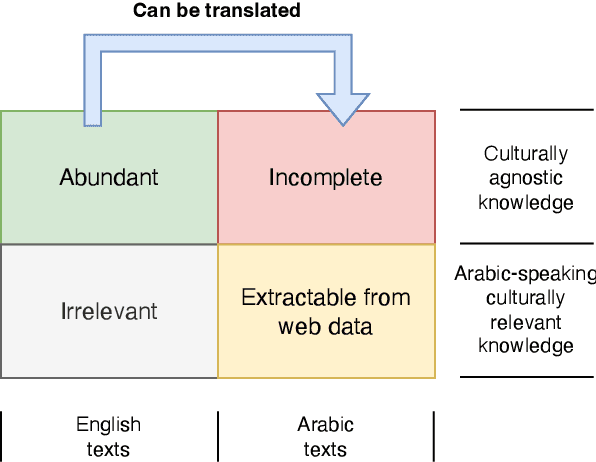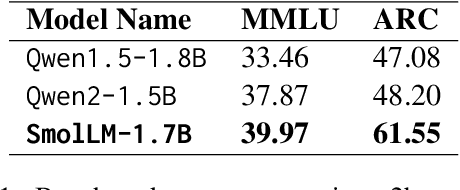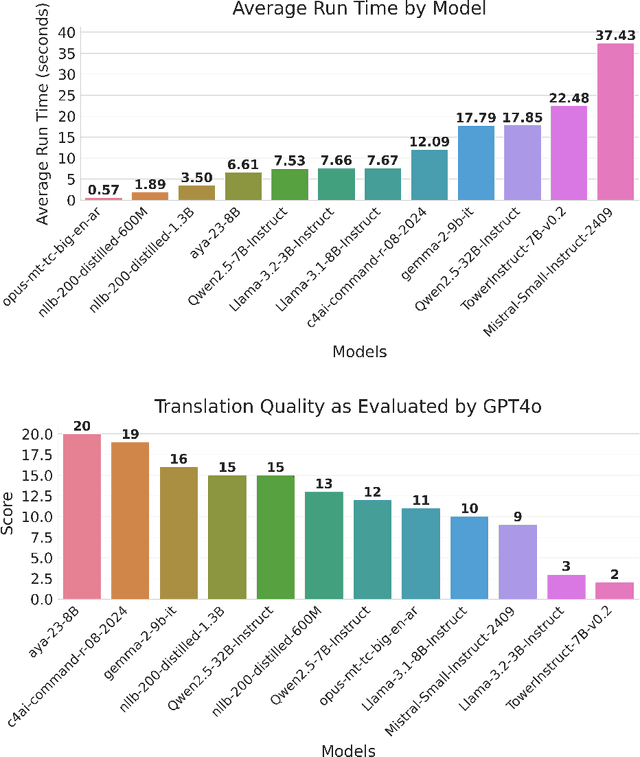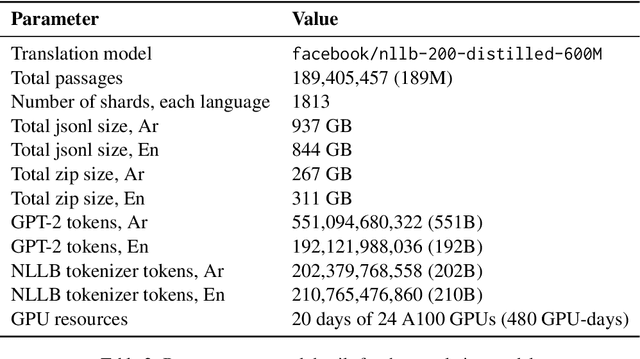David R. Pugh
Fineweb-Edu-Ar: Machine-translated Corpus to Support Arabic Small Language Models
Nov 10, 2024



Abstract:As large language models (LLMs) grow and develop, so do their data demands. This is especially true for multilingual LLMs, where the scarcity of high-quality and readily available data online has led to a multitude of synthetic dataset generation approaches. A key technique in this space is machine translation (MT), where high-quality English text is adapted to a target, comparatively low-resource language. This report introduces FineWeb-Edu-Ar, a machine-translated version of the exceedingly popular (deduplicated) FineWeb-Edu dataset from HuggingFace. To the best of our knowledge, FineWeb-Edu-Ar is the largest publicly available machine-translated Arabic dataset out there, with its size of 202B tokens of an Arabic-trained tokenizer.
Graph neural networks with configuration cross-attention for tensor compilers
May 26, 2024Abstract:With the recent popularity of neural networks comes the need for efficient serving of inference workloads. A neural network inference workload can be represented as a computational graph with nodes as operators transforming multidimensional tensors. The tensors can be transposed and/or tiled in a combinatorially large number of ways, some configurations leading to accelerated inference. We propose TGraph, a neural graph architecture that allows screening for fast configurations of the target computational graph, thus representing an artificial intelligence (AI) tensor compiler in contrast to the traditional heuristics-based compilers. The proposed solution improves mean Kendall's $\tau$ across layout collections of TpuGraphs from 29.8% of the reliable baseline to 67.4% of TGraph. We estimate the potential CO$_2$ emission reduction associated with our work to be equivalent to over 50% of the total household emissions in the areas hosting AI-oriented data centers.
 Add to Chrome
Add to Chrome Add to Firefox
Add to Firefox Add to Edge
Add to Edge